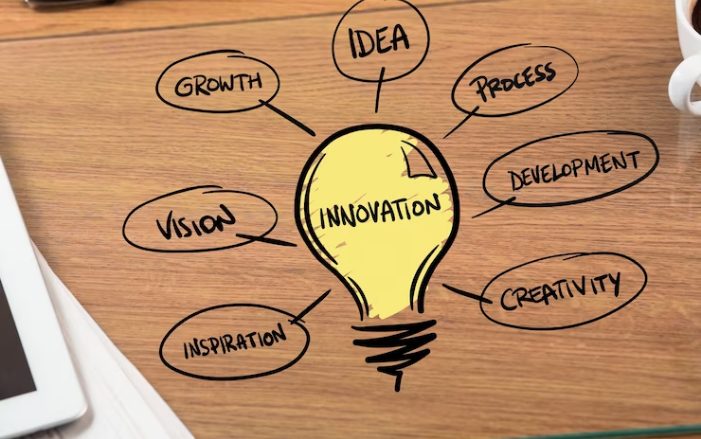Role of Research in Decision Making Process
Role of Research in Decision Making Process
Decision Making is a crucial skill for any business leader, manager, or entrepreneur. It involves choosing the best course of action among several alternatives based on the available information, goals, and constraints. However, decision-making is not always easy, especially in complex and uncertain situations. How can one make informed and effective decisions that can lead to desirable outcomes and avoid costly mistakes?

This is where research comes in. Research is the systematic and objective process of collecting, analyzing, and interpreting data to answer specific questions or solve specific problems. Research can help decision-makers to:
- Identify and define the problem or opportunity that needs to be addressed
- Gather relevant and reliable information from various sources
- Analyze and interpret the information to generate insights and solutions
- Evaluate the pros and cons of each alternative solution
- Choose the best solution that meets the objectives and criteria
- Implement the chosen solution and monitor its results
- Learn from the feedback and improve the decision-making process
In this blog post, we will discuss the role of research in the decision-making process, the types and methods of research, and the benefits and challenges of research for decision-makers.
Types and Methods of Research
Research can be classified into different types according to its purpose, scope, design, approach, and methods. Some of the common types of research are:
- Exploratory research: This type of research aims to explore a new or unfamiliar topic, phenomenon, or problem, and to generate preliminary ideas, hypotheses, or questions for further investigation. Exploratory research is usually conducted when there is little or no existing knowledge or theory about the topic or problem. Exploratory research methods include literature review, observation, case study, interview, focus group, survey, etc.
- Descriptive research: This type of research aims to describe the characteristics, features, or patterns of a population, phenomenon, or problem, and to answer questions such as who, what, when, where, and how. Descriptive research is usually conducted when there is some existing knowledge or theory about the topic or problem. Descriptive research methods include census, survey, observation, case study, etc.
- Explanatory research: This type of research aims to explain the causes, effects, or relationships of a phenomenon or problem, and to test hypotheses or theories. Explanatory research is usually conducted when there is well-developed knowledge or theory about the topic or problem. Explanatory research methods include experiments, quasi-experiments, correlation, regression, etc.
- Evaluative research: This type of research aims to evaluate the effectiveness, efficiency, quality, or impact of a program, policy, intervention, or innovation, and to provide recommendations for improvement. Evaluative research is usually conducted when there is a need to assess the performance or outcome of a specific action or solution. Evaluative research methods include experiments, quasi-experiments, cost-benefit analyses, impact assessments, etc.
Depending on the type and purpose of research, different methods can be used to collect and analyze data. Some of the common methods are:
- Quantitative methods: These methods involve collecting and analyzing numerical data using statistical techniques. Quantitative methods can provide precise and objective measurements and comparisons of variables or groups. Quantitative methods include survey, experiment, correlation, regression, etc.
- Qualitative methods: These methods involve collecting and analyzing non-numerical data using interpretive techniques. Qualitative methods can provide rich and detailed descriptions and insights into phenomena or problems. Qualitative methods include observation, interview, focus group, case study, etc.
- Mixed methods: These methods involve combining quantitative and qualitative methods to collect and analyze data from multiple sources or perspectives. Mixed methods can provide comprehensive and complementary information and evidence for decision-making. Mixed methods include sequential design, concurrent design, embedded design, etc.
Benefits and Challenges of Research for Decision-Making
Research can provide many benefits for the decision-making process, such as:
- Reducing uncertainty: Research can help decision-makers to reduce uncertainty by providing relevant and reliable information and evidence about the problem or opportunity, the alternative solutions, the potential outcomes, and the risks involved.
- Increasing efficiency: Research can help decision-makers increase efficiency by saving time and resources in finding and evaluating information and solutions. Research can also help decision-makers avoid duplication or repetition of efforts by building on existing knowledge or experience.
- Enhancing quality: Research can help decision-makers enhance quality by ensuring that the information and evidence are valid, accurate, relevant, and unbiased. Research can also help decision-makers to improve the quality of their solutions by testing their feasibility, effectiveness, and impact.
- Supporting innovation: Research can help decision-makers support innovation by generating new ideas, insights, or solutions for the problem or opportunity. Research can also help decision-makers to foster innovation by encouraging creativity, experimentation, and learning.
- Facilitating communication: Research can help decision-makers facilitate communication by providing clear and concise reports or presentations of the information and evidence for the problem or opportunity, the alternative solutions, and the chosen solution. By addressing their needs, expectations, and feedback, research can also help decision-makers communicate with various stakeholders, such as customers, employees, partners, suppliers, regulators, media, and society.
However, research also poses some challenges for the decision-making process, such as:
- Cost and time: Research can be costly and time-consuming, depending on the type, scope, design, and methods of research. Decision-makers need to balance the cost and time of research with the benefits and urgency of decision-making. Decision-makers also need to allocate sufficient budget and resources for conducting and managing research.
- Complexity and diversity: Research can be complex and diverse, involving different types of data, methods, sources, perspectives, and interpretations. Decision-makers need to have the skills and knowledge to understand and evaluate the quality and relevance of research. Decision-makers also need to integrate and synthesize the information and evidence from various research sources and methods.
- Ethics and politics: Research can raise ethical and political issues, such as privacy, confidentiality, consent, bias, conflict of interest, plagiarism, fraud, etc. Decision-makers need to follow the ethical principles and standards of research conduct and practice. Decision-makers also need to be aware of the political implications and influences of research on their decisions and actions.
Conclusion
Research is an essential component of the decision-making process. It can help decision-makers to identify and define the problem or opportunity, gather and analyze relevant and reliable information and evidence, evaluate and choose the best solution, implement and monitor the solution, and learn from the feedback and improve the process. Research can also provide many benefits for the decision-making process, such as reducing uncertainty, increasing efficiency, enhancing quality, supporting innovation, and facilitating communication.
However, research also poses some challenges to the decision-making process, such as cost and time, complexity and diversity, and ethics and politics. Therefore, decision-makers need to plan and conduct research carefully and critically, using appropriate types and methods of research that suit their purpose, scope, design, approach, and criteria.




